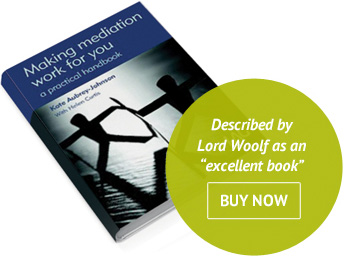BLOG
Confidentiality, Costs and Mediation
January 31, 2017
Mediator David Watkinson examines the judgment of Master Howarth in Savings Advice Ltd and Anr (Claimants) v EDF Energy Customers PLC (Defendant) SCCO Ref :PHW 1604049 given at the conclusion of a contested costs hearing.
Introduction
That mediation proceedings are confidential is taken as axiomatic. What is said and done in the course of a mediation remains there. The same goes for documents of whatever kind, and their contents, created for the purposes of the mediation. In the above case Master Howarth appears to have qualified these propositions to some extent.
The case itself came to an end when the Claimant accepted the Defendant’s Part 36 offer thus entitling it to costs. The Defendant contested a substantial part of the Claimants’ costs, in particular the method of calculation used for the amount of the Claimant’s insurance premium. In the course of the dispute there had been a mediation. The Claimant’s calculations had been set out in documents (e-mails) prepared for the mediation. The Defendant challenged their admissibility at the costs hearing relying upon the mediation agreement :-
“ all documents or other material produced for or brought into existence for the purposes of the mediation will be subject to without prejudice or negotiation privilege…not to be disclosable in any litigation or arbitration connected with the dispute so long as and to the extent that such privilege applies” (Clause 15)
The Master ruled the documents admissible (paras 24-31 of the judgment).
Reasoning
In doing so he stated certain principles. Essentially:-
“ (1) Confidentiality. The proceedings are confidential both as between the parties and the mediator. As a result, even if the parties agree that matters can be referred to outside the mediation, the mediator can enforce the confidentiality provision. The court will generally uphold that confidentiality [except] where it is necessary in the interests of justice for evidence to be given of confidential matters…
(2) Without Prejudice Privilege. The proceedings are covered by without prejudice privilege. This is a privilege which exists as between the parties and is not a privilege of the mediator. The parties can waive that privilege….”
He then went on to find that the documents had come into existence in relation to the mediation. He also found that the statements contained within them which were relevant to the costs dispute were “purely factual”. He decided that the obligation of confidence,
” cannot be used to suppress relevant information in an assessment relating to the costs of the substantive claim” (para 29).
Master Howarth found support for this in Clause 16 (d) of the Agreement to Mediate :-
“That no notes taken by the parties or by the Mediator ….(provided that if they would otherwise and independently of the Mediation have been admissible in such proceedings they should not be rendered inadmissible by reason of having been made due in the course of the mediation)”.
As to “without prejudice” privilege, he held that “exists to protect the disclosure of admissions or concessions made in negotiations, not to protect statements of pure fact”.
Comment
In its context the judgment is perfectly understandable. Not to have admitted the documents would have done an injustice to the claimants. Moreover the ruling, as it affects confidentiality in mediation proceedings, is clearly confined to costs disputes. The qualification as to “without prejudice” privilege could, however, lead to serious argument. Even if what is a “pure fact” can be agreed, cases where parties would not want to be bound by admissions made in the course of without prejudice negotiations are not difficult to imagine.
Perhaps the Garden Court standard Agreement to Mediate puts the position more simply:-
“Confidentiality
- Every person involved in the Mediation:
11.2 acknowledges that all such information [referring to 11.1 as “all information arising out of or in connection with the Mediation”] passing between the Parties, the Mediator(s) and/or Garden Court Chambers, however communicated, is agreed to be without prejudice to any Party’s legal position and may not be produced as evidence or disclosed to any judge, arbitrator or other decision-maker in any legal or other formal process, except where otherwise required by law.”
Master Howard also observed :-
“it is imperative that when parties enter into a formal mediation or informal negotiations for settlement of a claim that they do so in full knowledge of their opponent’s costs. The amount of the costs of litigation condition any subsequent negotiations or mediation that may follow “ (para 29)
These are wise words. We have all come across mediations which falter because just at the stage when all aspects have been agreed or nearly so, the question of who is to pay the costs is raised. Parties are generally encouraged beforehand by the mediator to come to the mediation equipped with the best information on their costs incurred to date. This case suggests parties would do well to respond to this encouragement.

